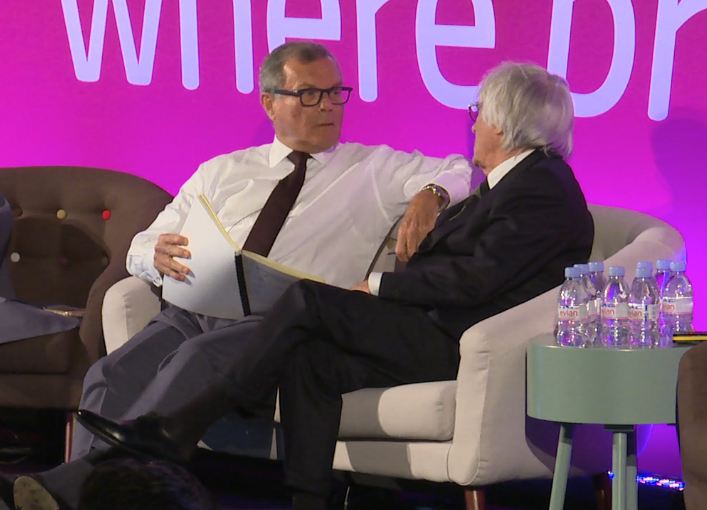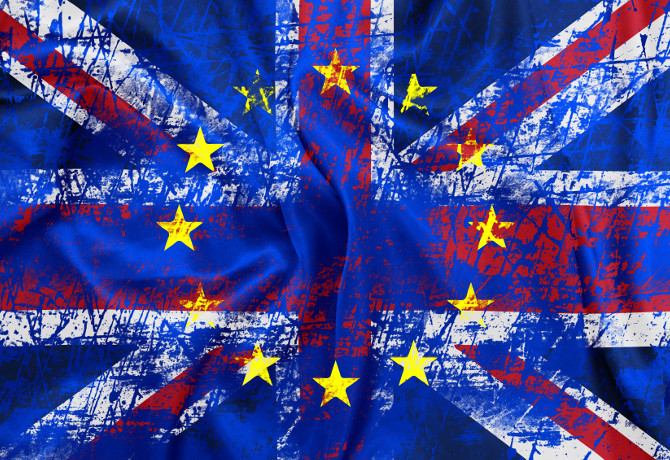Will a ‘Brexit’ from the EU break London’s position as a major international marketing and media hub? Matthew Chapman sifts through the claims and counter-claims.
As the world’s marketing and media elite gather at Cannes’ famous Gutter Bar, the British public will be making a decision that could alter the industry’s centre of gravity forever.
On 23 June the Brits go to the polls to decide whether Britain should exit the European Union, a political union that its detractors claim is holding the United Kingdom back.
Sajid Javid, Britain’s secretary of state for business, innovation and skills, argues the UK is the centre for advertising in Europe. His argument is backed by figures from the UK’s Advertising Association that found the country’s balance of payments surplus for advertising – the difference between imports and exports – stands at £1.6bn ($2.3bn). This is second only to the US, and the largest in Europe, five times the French figure.
The so-called ‘Brexit’ debate is reaching a crescendo as claims and counter-claims are thrown around by the Remain and Leave camps about the impact of leaving the EU.
Will a Brexit diminish London as a marketing and media hub, or will it soar after being unfettered from Brussels bureaucracy? The one thing both sides agree on is that it will cause short term instability, but from there on in they tell very different stories.
Leave supporters believe that, in the medium to long term, the UK’s economy will flourish as a result of Brexit. However, estimates from the UK’s Treasury claim Britain’s projected economy would be 6% smaller by 2030 if the country leaves the EU, costing each household £4,300 ($6,200).

Dire consequences?
Remain supporters have poured scorn on such figures, but a number of businesses have issued warnings about dire consequences of leaving the EU.
BMW’s marketing chief Ian Robertson has argued Britain should remain in the EU, while Torsten Muller-Otvos, chief executive of BMW-owned Rolls-Royce, has written to British workers claiming an EU exit would drive up costs and affect the company’s “employment base”.
However, BMW politely declined an offer to flesh out Robertson’s stance. The Brexit debate is a contentious issues and one that only the top execs appear comfortable discussing the topic in a forum where they can carefully control their message.
Speaking at last month’s Advertising Week Europe, WPP chief Sir Martin Sorrell argues his clients are spooked by the prospect of an EU exit and claims he knows certain clients will close plants.
“I know that jobs will go,” he added. “WPP would lose influence in four of our top ten market: Germany France, Italy and Spain. Brussels, whether we like it or not, is important.”
Not everyone is so certain. For instance, Formula One supremo Bernie Ecclestone, who was in conversation with Sorrell, believes the EU has not provided the UK with any economic benefit.
And he dismissed the notion that the UK will be frozen out if we leave the EU because “anything we [Britain] have got that we want to sell, people will buy”.
Eurosceptic economist Roger Bootle draws attention to what he believes is a history of business leaders threatening to stop investing in a country in order to sway monumental political decisions.
A number of media businesses have reaffirmed their commitment to investing in the UK, whatever happens with the EU referendum
“The prominent figures and organisations who are now campaigning for Britain to stay in the EU then campaigned for Britain to join the Euro,” said Bootle. “And they said if we stayed outside the Euro we are not going to have investment and London is going to become backwater and it was all of course complete nonsense.”
In fact, a number of media businesses have reaffirmed their commitment to investing in the UK, whatever happens with the EU referendum.
Paul Keenan, chief executive of Bauer in the UK, said the company will continue to “invest significantly in the UK whichever way the vote goes”.
Meanwhile, Havas will press ahead with building a European headquarters in the UK no matter the result of the referendum.
“A lot of people are saying they will stop investing in the UK if there was an exit so it would be a good opportunity for Havas to gain market share here,” joked Havas chief executive Yannick Bolloré. “I think whatever happens we will stay here for the long term. We have around 2,000 people in the UK so it is our responsibility to make sure we can assure them a future.”

Shrinking talent pool?
Although the impact of a Brexit on the number jobs within media and marketing is largely unpredictable, what is more assured is that the UK’s talent pool will drastically shrinking, with the country no longer needing to adhere to the EU’s rules on the free movement of its peoples.
And this could be hugely damaging for an industry so reliant on talent.
“The key issue is we are a talent business, the only thing we have got in the services industry is the people that walks through our doors every single day,” said Maxus Worldwide chief executive Lindsay Pattison. “And a big part of them working for an ad network or media company is that idea of mobility of talent.”
Other concerns raised by media agency bosses concern the added complexity around matters such as regulation and data protection caused by Britain extricating itself from the EU bloc.
“I don’t think it is a going to be in the interests of the UK to put itself in a completely different regulatory environment outside of the largest trading body in the world,” said Dentsu Aegis network chief executive Jerry Buhlmann.
“We would have, for example, different regulations on data? So it is going to be the American way or the European way? It makes it much more complex and increasingly we are dealing with a world where global communities are moving beyond national boundaries.”
“It is not by getting out of the EU that you will be better off, and it will not help the EU or the UK”
However, the other side of the coin is Britain will be able to free itself of the Brussels red-tape, and (if it chooses wisely) cherry-pick the systems that best serve the national interest.
“Inside the single market you have to obey [Europe’s] rules and regulations, and there’s nothing wrong with that in principle, except those rules and regulations extend over the whole of your economy,” argues Bootle. “If we were outside the single market we would not have to apply those rules and regulations across the whole of our economy.”
Even Publicis chief executive Maurice Lévy, who argued vehemently that Britain should stay in the EU and hit out at Prime Minister David Cameron’s handling of the referendum at the Bloomberg Brexit Debate (watch below), concedes there is a problem with EU bureaucracy.
“The EU has a lot of drawbacks and issues and we should address those – clearly there is a lot of red tape and regulations,” says Lévy. “But it is not by getting out of the EU that you will be better off, and it will not help the EU or the UK.”
Putting on a brave face
Whatever the outcome of the vote, the UK advertising industry is upbeat about its prospects. Or it is at the very least putting on a brave face.
“UK advertising will move forward whichever way the vote goes,” said Advertising Association chief executive Tim Lefroy. “We are bloody good at this stuff.”
However, as the media and marketing industry knows all too well, image is everything. And if the UK votes for Brexit and is seen to be closed for business then this could have dire consequences for an industry so reliant on talent.
The likes of Shanghai, Mumbai and Sao Paolo – the growing powerhouses of the sector – cannot be expected to stand still.
It may not only be the rose wine at the Gutter Bar that causes British media and marketing execs a sore head when they wake up on 24 June.








